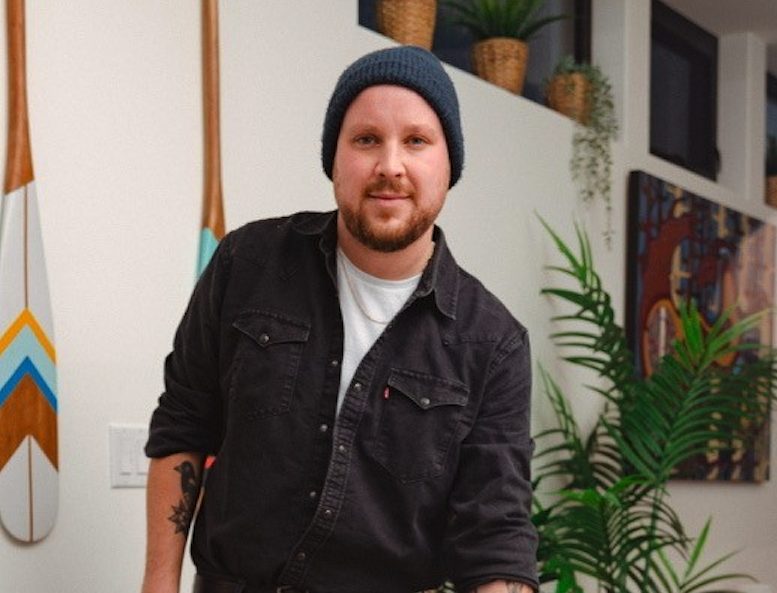2025 Winners
Congratulations to all the 2025 Short Grain Winners!
Fiction
1st prize ($1000)
Katie Martí
"Jackpot"
2nd prize ($750)
Bibiana Tomasic
"The Orange"
3rd prize ($500)
Aaron Schneider
"On a Tuesday in November"
Honourable Mention
Kyra Powell
"Self Help"
Tanya Rivonne
"On Instinct"
Poetry
1st prize ($1000)
Jennifer B.S. Williams
"Braiding Strands of DNA"
2nd prize ($750)
Kennedy Willier
"2 years 2 Days Ago"
3rd prize ($500)
Dominique Bernier-Cormier
"All Progress Will Be Lost"
Honourable Mention
Nisha Patel
“A Man in the Edmonton Saltwater Aquarium Enthusiasts Facebook Group Asks How to Safely Split His Starfish”
Annie Blodgett
“In the Afterlife, My Father Drives a Honda Odyssey
Judges' Comments

Fiction - Fawn Parker
It is difficult to select the “best” of any pool of short stories. All of these pieces had something to offer, something unique to their own worlds and inner systems. I selected those which most elicited a response I sometimes have while reading: a sense that I am feeling something in a particular way for the first time.
In first place, “Jackpot,” a woman wins the lottery and shops at the new high-end grocery store that has replaced her regular place, Melvin’s. She plans to cook a celebratory dinner, and share the news with her husband. This story achieves a tricky balance between emotional insight and subtle humour. The prose is clean and has great flow. Lucía considers her attachment to her “old life” in the face of this sudden and significant financial change.
In second place is “The Orange,” which is a beautiful snapshot of a woman’s trip to Malta after losing her husband. She eats what she thinks is an orange, watching a man hesitate at the edge of a cliff. This story evokes such emotion and sensation, spanning the time it takes for the protagonist to peel and eat an orange, only to be corrected upon returning to her hotel: “It was a tangerine.”
The story in third place, “On a Tuesday in November,” follows Rebecca, a sessional instructor who wakes one morning and has unknowingly transformed into a wolf. Somehow absurd and true-to-life at once, this story considers institutional power dynamics, literary tropes, and identity. Rebecca and her story move from the claustrophobia of the English department and the city to the openness of the wilderness.
I selected the following two stories as honourable mentions: “Self Help” and “On Instinct,” which stood out to me in different ways. “Self Help” reveals the intensity and disorientation of a mother’s postpartum, and “On Instinct” is a lively and comedic story about a group of classmates.

Poetry - Conor Kerr
“Braiding Strands of DNA” is a stunning, visceral exploration of identity, lineage, and resilience, all woven through the deeply symbolic act of braiding hair. The poet masterfully transforms a daily ritual into a layered narrative of selfhood, motherhood, and Indigenous belonging. Each line pulses with emotional depth, raw frustration, fierce pride, and tender introspection. The visual form of the poem itself mirrors its content: fragmented lines evoke the texture of braids unravelling and reforming, echoing the push-pull tension between cultural legacy and personal experience. The interplay between strands of DNA and strands of hair is absolutely brilliant. It conjures a spiritual genealogy where genetics and lived experience are braided together, an unbreakable cord of ancestral memory, struggle, and survival. There’s a profound honesty here about the bodily aftermath of motherhood, the sacredness of Indigenous hair traditions, and the inner battle of not quite meeting expectations, whether personal or cultural. The humour and irony are as impactful as the spiritual and emotional stakes. This line alone punches with relatability, wit, and heartbreak. And yet, despite the frustration, there is perseverance. The final image, of wetting the hair again and redoing the braids, embodies reclamation, persistence, and quiet revolution. That closing line, “no one has heard of a native who can’t braid,” lands with both weight and wink, balancing tradition with personal truth. This is more than a poem. It’s testimony, ceremony, and art. An unforgettable work of voice, spirit, and power.
“2 Years 2 Days Ago” is a quiet, aching meditation on grief, memory, and the slow, nonlinear passage of time. Its imagery, apples bruising on rain-soaked pavement, the dull glow of a streetlight, the soft jingle of keys—beautifully mirrors the weight of loss and the tenderness of remembering. The line “we are not meant to hold heavy things forever” lingers like a truth we all try to learn. The poet’s restraint and subtlety are powerful; the emotion is not shouted, but whispered, and that whisper echoes long after reading. Grief becomes not just sorrow, but a presence, companion, memory, and witness. Simply stunning.
“All Progress Will Be Lost” is breathtaking, a haunting, beautifully rendered elegy for friendship, memory, and the spaces where grief and digital landscapes converge. The way it weaves the emotional weight of loss with the uncanny familiarity of a video game world is both surreal and profoundly human. Lines like “his face is a rumour spreading across the desert” shimmer with poetic depth, evoking the impermanence of memory and the ache of longing. The refrain of “no saving” becomes devastatingly layered, echoing both the game’s mechanics and the finality of death. This piece is intimate, inventive, and achingly honest. A masterwork of digital-age mourning.




